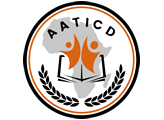Why Attend
In the 21st century, sustainable waste management is as much about resource management and recovery, as it is about safe and effective disposal.
This course helps participants who either produce waste or handle waste to use information gained to develop a more sustainable and cost-effective way of managing waste in both a local and national context. It follows the principles of the waste management hierarchy to underpin good practice in waste management, in a way that recognizes waste as a resource. This will help to protect the environment and maximize profit.
Participants will learn to use a range of tools to explore opportunities in waste prevention, re-use, and recycling; and in so doing, reduce management costs and create commercial opportunities.
Opportunities for energy generation from biological waste, including food waste, will also be identified.
Course Methodology
This course is highly interactive and includes group discussions, case studies and syndicate work. It includes practical exercises that will allow all participants to use the knowledge they gained to implement their skills in Waste Management.
Course Objectives
By the end of the course, participants will be able to:
- Explain the use of the waste management hierarchy in the sustainable management of waste and its role in the circular economy
- Use the principles of sustainable waste management in a Middle East context
- Identify opportunities in waste prevention for cost-efficient waste management
- Explore re-use and recycling opportunities in waste management, and manage waste-related environmental risks through a risk-based approach
- Use principles of waste recovery to explore opportunities for energy generation through anaerobic digestion and energy from waste incineration
- Examine the potential impacts of waste disposal on land (landfill) and identify more sustainable alternatives where appropriate
Target Audience
This course is designed for waste managers and supervisors, including managers and supervisors in all waste-producing industries (e.g. including manufacturing and retail.) It is also ideal for municipal waste managers, waste planners (private and public sector) and anyone who wishes to explore opportunities in the management of waste in the 21st century.
Target Competencies
- Waste prevention
- Sustainable waste management
- Waste recovery
- Waste disposal
Location:
South AfricaTraining Dates:
Each course starts every Monday of each week. Please book your training on a date that is a Monday.Course Duration:
Unit Standard:
NQF Level:
Number of Credits:
Course Fees
Note: Please fill in the online application form on the left or bottom if this page to receive a quotation with detailed pricing from AATICD.How to Apply:
To Apply Simply Fill in the Online Enquiries / Applications form on the Right Sidebar or Bottom of this website https://www.aaticd.co.zaNB:
When filling the online application form; please take note of your desired Training Month, Duration in Weeks and Training Session. This will give us the exact dates you will be attending your classes.Also note that Tuition Fees must be paid upfront on or before training start date. This is to ensure that all resources are made availabe for you before you start. You will not be allowed into training if fees are not paid and verified.
Also note that Tuition Fees Cancellations must be made 14 business working days before the starting date of training. This will allow us to do a 50% refund of the total amount paid. If cancellations are made thereafter note that no refund will be made to delegates.
Tuition Fees include teas and lunch as well as either a laptop or tablet which a delegate will take home free of charge.
Tuition Fee DOES NOT include Accommodation, Dinners and other Extra Curricular Activities or Incidentals. Delegates are expected to fund this on their own. AATICD will not be held accountable for any incidents to delegates.
In-House Trainings are also available for 3 or more delegates for any duration. Please consult with our Administration for such In-House training bookings.
Course Outline
- Sustainable waste management: an international context
- Waste management policy for the 21st Century
- Principles of sustainable waste management
- Sustainable waste management and the circular economy
- Sustainable waste management: A Middle East perspective
- Environmental risks and their management and control
- Pollution linkages and their use in managing environmental risks
- Good practice in municipal waste management
- Sustainable options for different waste types
- Waste prevention
- Commercial ‘drivers’ and good practice examples
- The true cost of waste
- Use of simple tools
- Flow diagrams
- Scope to save
- Process mapping
- Mass balance
- SMART objectives
- Cause and effect diagrams
- Decision matrices
- Waste re-use and recycling
- The value of waste as resources
- The role of Materials Recovery Facilities (MRFs)
- ‘Clean’ MRFs and ‘Dirty’ MRFs: How they work
- The role of transfer stations
- The science of composting
- Good practice in open windrow composting
- Good practice in ‘In-Vessel Composting’ (IVC)
- IVC for food waste
- Waste recovery
- Anaerobic Digestion (AD): an old science with new opportunities
- The science of AD: summary
- AD of food waste
- AD for energy generation
- Good practice in the management of food waste
- Waste incineration with energy recovery
- Good practice in Energy from Waste Incineration (EfW)
- EfW for municipal waste
- Waste disposal on land
- Landfill: Hazards and risks
- Principles of sustainable landfill
- Landfill: Engineering considerations
- Regional (including climate and geological) influences on good practice
- Co-disposal landfill
- Long-term storage of waste
- Waste management in 2050
- Predicting the future: potential commercial opportunities in waste management
- Course summary




